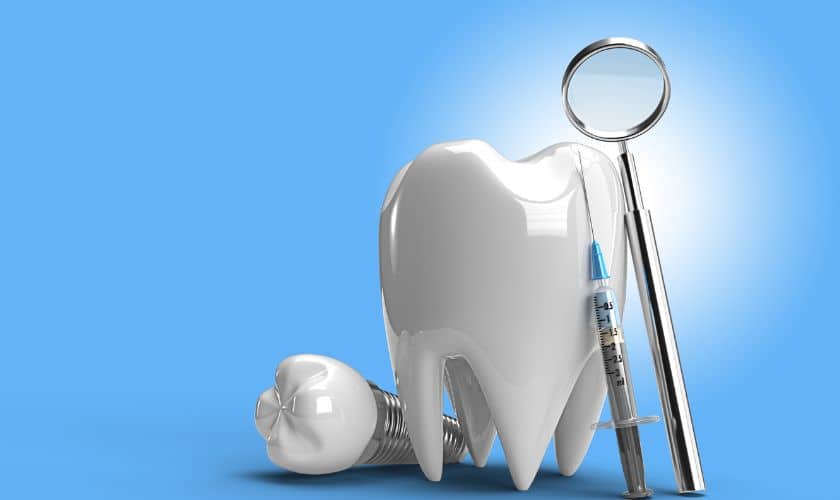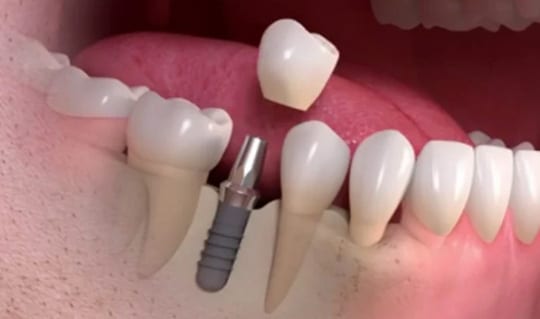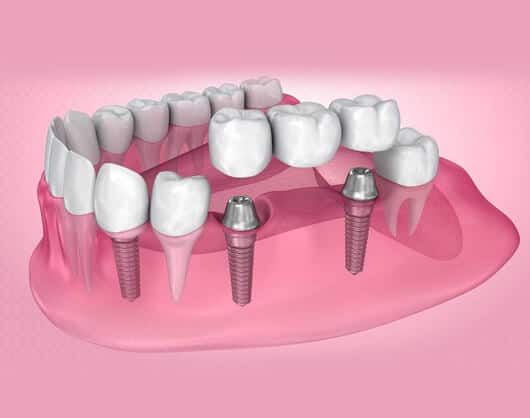
Are you tired of hiding your smile because of missing teeth? Dental implants may be the perfect solution for you! They not only restore the appearance of your smile but also improve your oral health and overall well-being. However, choosing the right candidate is crucial for a successful implantation procedure. In this blog post, we will guide you through the process of finding your perfect fit and achieving a confident and healthy smile.
The Different Types Of Dental Implants
Dental implants are a popular solution for replacing missing teeth. There are different types of dental implants available, and each has unique features that make it suitable for specific cases.
Endosteal Implants: These are the most commonly used type of dental implant. They consist of titanium screws that get inserted into the jawbone to serve as artificial roots for replacement teeth. Endosteal implants can support single or multiple teeth restorations.
Subperiosteal Implants: For patients with insufficient bone density in their jawbones, subperiosteal implants may be a viable option. Unlike endosteal implants which go directly into the bone, subperiosteal implants rest on top of the bone under the gum tissue.
Zygomatic Implants: Sometimes when there is not enough upper jawbone to accommodate traditional implant placement, zygomatic implants may be considered. This technique places longer implant screws through the cheekbone (zygoma) instead of directly into the maxilla (upper jaw).
Mini Dental Implants: As their name suggests, mini-implants are smaller versions of standard dental implants. They require less space in your mouth and involve a less invasive surgical procedure than regular-sized ones.
Each type has advantages and disadvantages depending on factors like patient health status, location and number of missing teeth, and bone density among others. Ultimately it’s important to talk with an experienced dentist who can help determine what kind is best suited FOR YOU!
Factors To Consider When Choosing A Candidate For Dental Implants
When it comes to choosing a candidate for dental implants, several factors need to be considered. First and foremost is the overall health of the patient. Patients with chronic illnesses such as diabetes or heart disease may not be ideal candidates for dental implants due to potential complications during surgery and healing.
Another important factor is the condition of the patient’s gums and jawbone. For an implant to be successful, there needs to be enough healthy bone present in the jaw for the implant to fuse with. Patients who have suffered from advanced gum disease or any kind of trauma affecting their jawbone may require additional procedures before they can receive implants.
The patient’s lifestyle habits should also be taken into consideration when choosing a candidate for dental implants. Smoking, excessive alcohol consumption, and poor oral hygiene can all negatively impact the success rate of dental implant surgery.
It is important to assess whether or not patients have realistic expectations about their results. Dental implants can dramatically improve both function and appearance, but they are not a quick-fix solution. Patients must understand that proper care and maintenance will ensure long-term success.
Selecting an appropriate candidate requires careful evaluation by both the dentist and patient alike to achieve optimal outcomes.
The Implantation Procedure
The implantation procedure is a crucial part of the dental implant process. Before undergoing the procedure, your dentist will first assess your overall health condition to make sure that you are fit for surgery. This includes checking your medical history and performing a thorough physical examination.
Once you have been cleared for surgery, the next step is to prepare the site where the implant will be placed. Your dentist may need to remove any remaining natural teeth or clean out any decayed matter to provide a stable base for the new implant.
Afterward, your dentist will drill into the jawbone using special tools and create a space where the implant can be placed securely. The implant itself is then inserted into this space and tightened down with specialized screws.
Once everything is properly secured, your dentist will stitch up any incisions made during the procedure and provide specific aftercare instructions on how to care for your new implants as they heal over time.
While it may seem like a long process on paper, getting dental implants can significantly improve both your oral health and quality of life in just a few simple steps!
Aftercare And Maintenance
Aftercare and maintenance are crucial for the success of your dental implant. Proper care will prevent any complications and ensure that your implant lasts a lifetime.
Firstly, it is essential to maintain excellent oral hygiene. Brushing twice a day with fluoride toothpaste, flossing, and using an antiseptic mouthwash will keep your mouth healthy and free from infection.
Secondly, visit your dentist regularly for checkups and cleanings. Your dentist will be able to identify any issues early on and provide the necessary treatment.
Thirdly, avoid chewing hard foods or using your teeth as tools as this can damage the implant or surrounding teeth.
Fourthly, if you participate in sports or other physical activities where there is a risk of trauma to the face or jaws, wear a protective mouthguard to protect your implants.
Quit smoking as tobacco use can increase the risk of complications such as infections and implant failure.
Proper aftercare and maintenance are critical for preserving the health of dental implants. By following these simple steps outlined above, you can enjoy long-lasting results from your investment in dental implants.
Bottom Line
When it comes to choosing the right candidate for dental implants, there are a lot of factors to consider. From the type of implant to the individual’s oral health and medical history, making the right decision requires careful consideration and expert guidance.
While dental implants can be an excellent solution for many people who have lost teeth or suffered from other types of dental damage, they are not always suitable for everyone. Factors like gum disease, bone loss, and other underlying health issues can impact whether or not someone is a good candidate for this type of treatment.
That’s why it’s so important to work with experienced dentists who know how to evaluate each patient on an individual basis. By taking into account all of these different factors and carefully assessing each person’s unique needs and situation, dentists can help determine whether or not dental implants are the best option.
Ultimately, if you’re considering getting dental implants yourself, you must do your research beforehand. Talk to your dentist about your options and ask questions about what you can expect during and after the procedure. With proper care and attention both before and after surgery, most patients find that their new implants feel just as comfortable as their natural teeth – giving them back their confidence in their smile.




